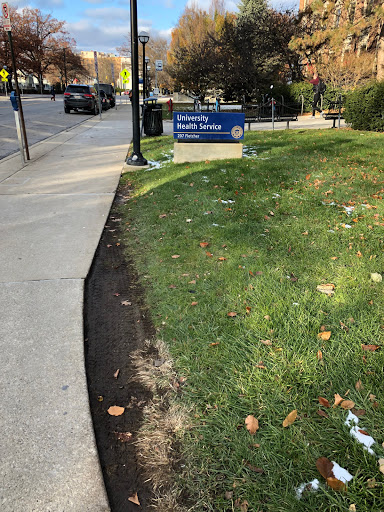Lesson Plan Examples

Developing effective lesson plans is a crucial aspect of teaching, as they serve as a roadmap for both instructors and students, guiding the learning process and ensuring that educational objectives are met. A well-crafted lesson plan should be detailed, yet flexible, allowing for adjustments based on the class's progress and feedback. It typically includes clear learning objectives, a list of materials needed, a step-by-step guide to the instructional process, and assessment strategies to evaluate student understanding. In this article, we will delve into the components of a comprehensive lesson plan, explore various examples tailored to different subjects and age groups, and discuss the importance of adaptability and continuous improvement in lesson planning.
Understanding the Components of a Lesson Plan

A lesson plan is more than just a series of activities; it is a thoughtful and structured approach to teaching and learning. The key components of a lesson plan include:
- Introduction or Hook: This is where the teacher introduces the topic, grabs the students’ attention, and sets the stage for what is to come.
- Direct Instruction: The teacher presents new information, demonstrates skills, or explains concepts directly to the students.
- Guided Practice: Students work in small groups or as a whole class under the teacher’s guidance to apply what they have learned.
- Independent Practice: Students work on their own to apply the skills or knowledge they have acquired without direct supervision.
- Assessment: This can be formal or informal and is used to evaluate student understanding and adjust the instruction as needed.
- Conclusion: The teacher summarizes the key points, addresses any questions, and previews future lessons.
Adapting Lesson Plans for Different Subjects
The structure of a lesson plan remains relatively consistent across different subjects, but the content, activities, and assessments will vary significantly. For instance:
- Mathematics: Lesson plans in mathematics often focus on problem-solving, with an emphasis on understanding concepts and applying them to solve problems. Activities might include group work on math problems, individual practice worksheets, and quizzes to assess understanding.
- Language Arts: In language arts, lesson plans might center around reading comprehension, writing skills, and vocabulary building. Activities could include reading aloud, writing workshops, and discussions.
- Science: Science lesson plans typically involve experiments, observations, and discussions. The hands-on approach is crucial, allowing students to explore scientific concepts in a practical way.
| Subject | Key Activities | Assessment Strategies |
|---|---|---|
| Mathematics | Group problem-solving, individual practice | Quizzes, project evaluations |
| Language Arts | Reading discussions, writing workshops | Essay evaluations, reading comprehension tests |
| Science | Experiments, class discussions | Lab reports, quizzes on scientific concepts |

Lesson Plan Examples for Different Age Groups

The design of a lesson plan also depends on the age group of the students. Younger students require more interactive and play-based learning, while older students can engage in more complex and abstract concepts.
- Elementary School: For younger students, lesson plans often incorporate games, songs, and hands-on activities to make learning fun and engaging. Subjects like mathematics and language arts are introduced in a basic form, with an emphasis on foundational skills.
- High School: High school students can delve deeper into subjects, exploring more complex concepts and theories. Lesson plans might include debates, research projects, and critical thinking exercises to prepare students for higher education and professional environments.
- College/University: At the college and university level, lesson plans focus on specialized knowledge and skills. Students are expected to engage in independent research, participate in seminars, and produce original work such as essays and projects.
Key Points
- Lesson plans should be structured yet flexible to accommodate different learning styles and unexpected classroom dynamics.
- The components of a lesson plan, including introduction, direct instruction, guided practice, independent practice, and assessment, are foundational but can be adapted based on the subject and age group.
- Effective lesson planning considers the learning objectives, the nature of the subject matter, and the students' prior knowledge and interests.
- Adaptability and continuous improvement are key to ensuring that lesson plans remain relevant and effective.
- Student feedback and assessment data are crucial for refining lesson plans and instructional strategies.
Importance of Continuous Improvement
Lesson plans are not static documents; they are dynamic tools that evolve based on teaching experience, student feedback, and changes in curriculum or educational technology. Continuous improvement involves reflecting on the effectiveness of lesson plans, making adjustments as needed, and incorporating new teaching strategies and technologies to enhance student learning.
What are the essential components of a lesson plan?
+A lesson plan typically includes an introduction, direct instruction, guided practice, independent practice, and assessment. These components can be adapted based on the subject, age group, and specific learning objectives.
How do I adapt a lesson plan for different age groups?
+When adapting lesson plans for different age groups, consider the developmental stage, prior knowledge, and learning style of the students. Younger students benefit from more interactive and play-based learning, while older students can engage in more complex and abstract concepts.
Why is continuous improvement important in lesson planning?
+Continuous improvement in lesson planning allows teachers to refine their instructional strategies, incorporate new technologies and methodologies, and better meet the needs of their students. It involves reflecting on the effectiveness of lesson plans, gathering feedback, and making adjustments to enhance student learning outcomes.
In conclusion, developing effective lesson plans is a critical aspect of teaching that requires careful consideration of learning objectives, subject matter, and the needs and abilities of the students. By understanding the components of a lesson plan, adapting plans for different subjects and age groups, and embracing continuous improvement, educators can create engaging, informative, and successful learning experiences for their students.



